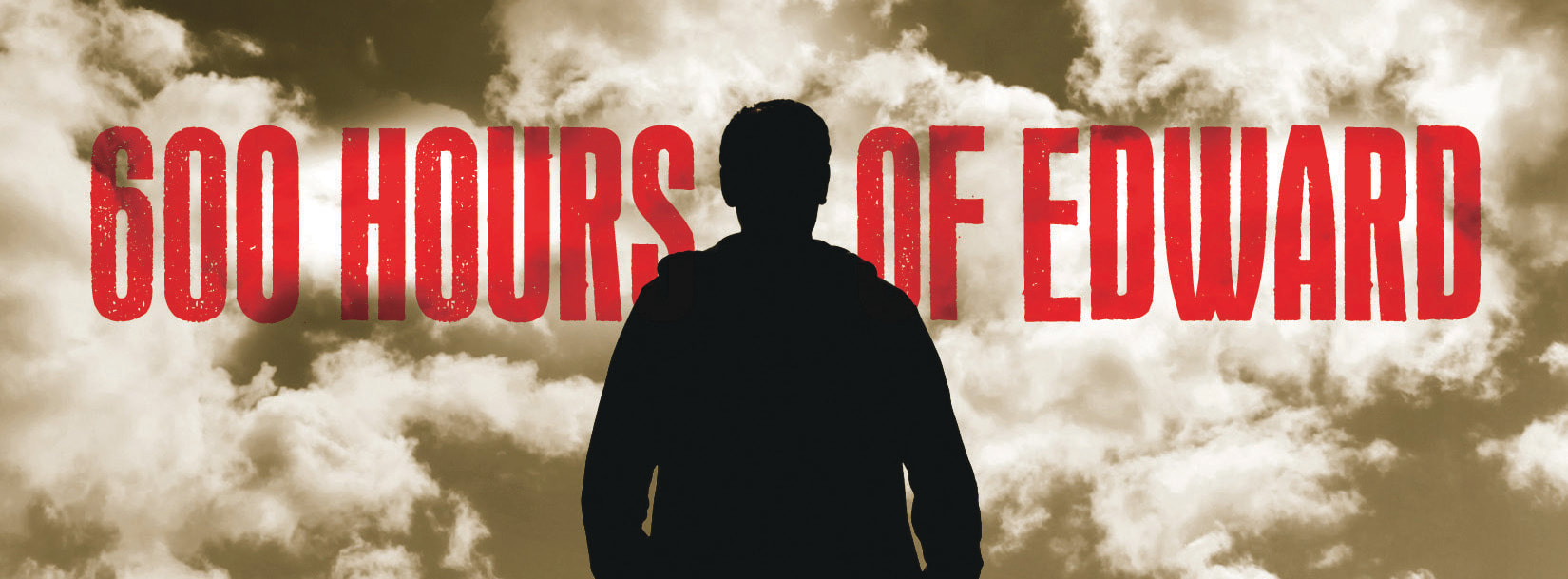|
10/12/2023 4 Comments Closing the Loop: On EndingsThis, I suppose, could fall into the category of a Saturday Afternoon Craft Talk, except it's Thursday afternoon and I don't much feel like being bound by time. We're coming up hard on the first of November, and that will mark 15 years since I began writing my first novel, 600 Hours of Edward. The backstory of how that book came to be is oft-told, no repeats necessary. I will say simply that it was not only my first novel but also the first book-length manuscript I ever finished, which marked something of a watershed by showing me I really could finish something of that size. Before then, I'd always had hope, which is something, but it's far less durable than evidence. I'd like to say I learned something important about how to write a novel by completing that first literary marathon, but I'm not certain that's the case. If you're trying to stretch yourself and grow thematically and ambitiously—and I certainly try—you quickly learn that each new project is a distinct challenge, with its own factors that are highly distinguishable from those that influenced previous works. I suppose that earlier quality, hope, has been replaced by faith, in that I know I've done it before and can do it again. I'm less apt to be cowed by things like hard sledding or the great murky middle, when I'm adrift in a manuscript and not yet sure how it's all going to resolve. But each project rises and falls not on past performance but on indicators I've learned to wait on: the spark of memory, the hard-bond connection to it, the imagination that gets set free, the impossible-to-ignore compulsion, at last, to sit down and start writing. Consequently, my occasional opportunities to talk to aspiring writers about how to go about tackling a novel tend toward mundane platitudes: 1. You have to start it. 2. You have to keep at it. 3. You have to bear down when it gets tough. 4. You have to keep going. Point is, I'm not gifted in the ways of teaching writers. I figured out what works for me, and even then, my success rate falls well short of 100 percent. Not everything I start gets finished. Not everything I finish is worth publishing. It's just the way of things. As for my flaccid advice above, it is, at the least, accurate. You can't write a novel unless you start writing a novel. But let's look at the other side of it: You can't finish one without ending it, either. My favorite moment in the process of drafting a novel comes fairly late, when at last I see not only where the road ends but also a clear view of how I'm going to get there. When, exactly, this moment comes is variable. Sometimes I see it from the distance of thousands of words and have to buckle up for a long ride to it. Sometimes I don't see it until I'm almost on top of it, rather like rounding a bend and seeing your destination city laid out and sparkling before you. Whenever the moment comes, it heralds an important development: I'm going to finish the first draft of this thing. First drafts lead to second drafts, which are my favorite part. That's when I find out whether this thing I've done is worth a damn. I've never made much of a secret of this: I often know how a story will end before I write the first word of it. Now, I'm not always right. But I often am. In the case of 600 Hours of Edward, I knew every word of the last line before I wrote any of the other 70-some-odd-thousand words that precede it. And sure enough, when Edward got there, the ending I envisioned was waiting for him. I had no expectation that such a thing would happen again—hell, I had no expectation that there would be a second novel—and that lack of assumption has served me well in the inevitable cases of endings that never come because I can't get out of the muck and arrive at them. But it has happened occasionally, a function of cinematic thinking, I believe. When I write, I'm also cueing a movie that never gets released and plays for an audience of one: It's an interior visual guide to the look and feel and tone and quality of the story I'm trying to write. Even when Edward was just a flicker of a thought, I could see an ending for him. The struggle lay in getting him there. I had no idea how to do that. That's the voyage of discovery that makes the whole undertaking worthwhile. Here, then, are nine novels' worth of endings (I'll leave the ending of Dreaming Northward to you, sometime this coming spring), along with any interesting (or not) details about them (click the covers to learn more about the books):  "All I have to do is look both ways and cross." As I said above, these were the 11 words I knew when I began to write Edward's story on Nov. 1, 2008. What the rest would be was a delicious mystery that I hoped I could solve.  "And still I wondered: If my children someday learn my secrets, what will they think of me?" I'm not a father (except of pups and kitties), but a couple of times, I've had to find my way with a character who is. Mitch Quillen was speaking clearly to me by the end of that book.  "I know she is." Despite Edward Stanton's love of language, my dude tends toward the simple observations. In the second novel featuring him, he ended with brevity. I didn't see it coming.  "I know this much, too: Never again will we keep our hearts waiting." I'm going to say it: This one remains a little cryptic, even to me. But sportswriter Mark Westerly said it with such finality that I had to trust him.  "His son moved closer, almost imperceptibly, and then, in an instant, fully there, and Samuel slipped a hand across the older man’s shoulders, and Sam leaned into the warmth of his child and waited and hoped for the despair to pass, as all things surely must." I got nothin'. Didn't see it coming. I love open endings, and man, is that one wide freakin' open.  "That’s a fact." Hi, Edward. Of all the characters I've written, he's the least like me but also the one who speaks most unmistakably to me. Will I write him again? If he demands it, absolutely.  "Can you believe that?" Out of context, it's a little hard to catch the nuance of what disgraced and defeated newspaper editor Carson McCullough is saying. It's pure incredulity, a good sign for his life beyond the page, I think.  "Be the ripple." As it turns out, this was Elisa's line, and I think it's just perfect. She, in fact, was the one who recommended ending the story the way we did; I'd had a different, lesser idea. Collaboration for the win!  "Even without doing the math, Max could see so many ways all of this could flow." I knew where the story for Max Wendt would end. (Max, in my opinion, goes on and on beyond the strictures of the book.) But I didn't know the words until we got there and found them shimmering on the Maine seashore.
4 Comments
10/12/2023 01:15:15 pm
I wrote a novel once. It's not great. It probably isn't even good, but that's not relevant here. During the process I had a moment I knew I wanted to happen later in the book, but not the end. For however long it took I wrote the rest of the story to get to that moment, after which I'd move on to the ending. When I actually got to that moment I read it and realized that this is where the story ends.
Reply
10/12/2023 01:33:38 pm
That's great! I love that the process is full of those discoveries.
Reply
10/12/2023 03:06:18 pm
Like you I've found each new book has its own challenges and opportunities. I'm a better writer after each one.
Reply
10/12/2023 09:44:39 pm
You bet, Mark. It's all storytelling, right? Even if the details aren't yours to make up, narrative decisions must be made, and who better to make them than you?
Reply
Your comment will be posted after it is approved.
Leave a Reply. |
About CraigCraig Lancaster is an author, an editor, a publication designer, a layabout, a largely frustrated Dallas Mavericks fan, an eater of breakfast, a dreamer of dreams, a husband, a brother, a son, an uncle. And most of all, a man who values a T-shirt. Archives
July 2024
By categoryAll 600 Hours Of Edward And It Will Be A Beautiful Life Awards Books Bookstores Community Connection Craft Craig Reads The Classics Dreaming Northward Education Edward Adrift Family Geography History Libraries Memory Montana NaNoWriMo Northward Dreams People Plays Poetry Public Policy Q&A Social Media Sports Stage Texas The Fallow Season Of Hugo Hunter The Summer Son This Is What I Want Time Travel Work Writers Writing Archives
July 2024
|



 RSS Feed
RSS Feed